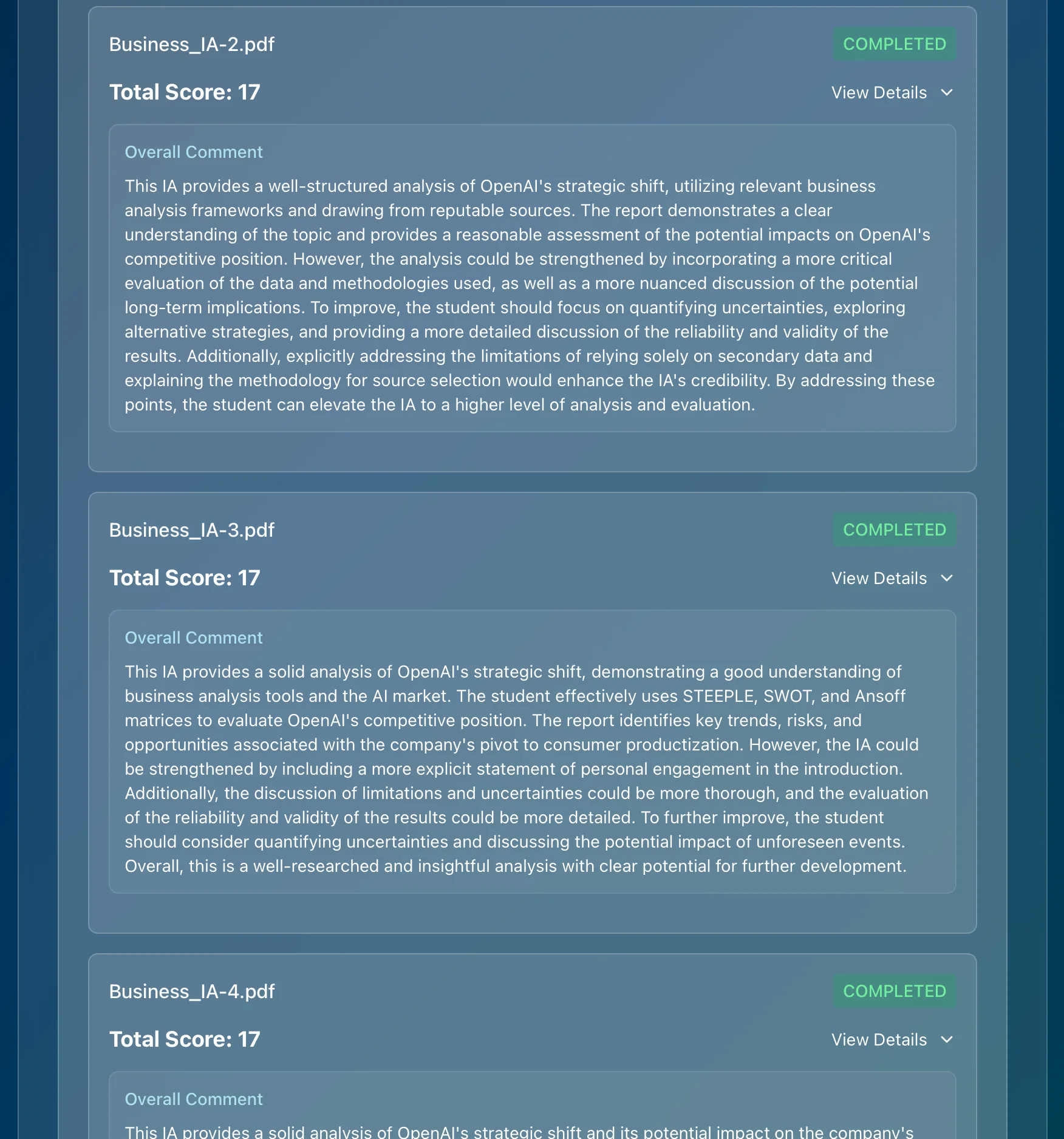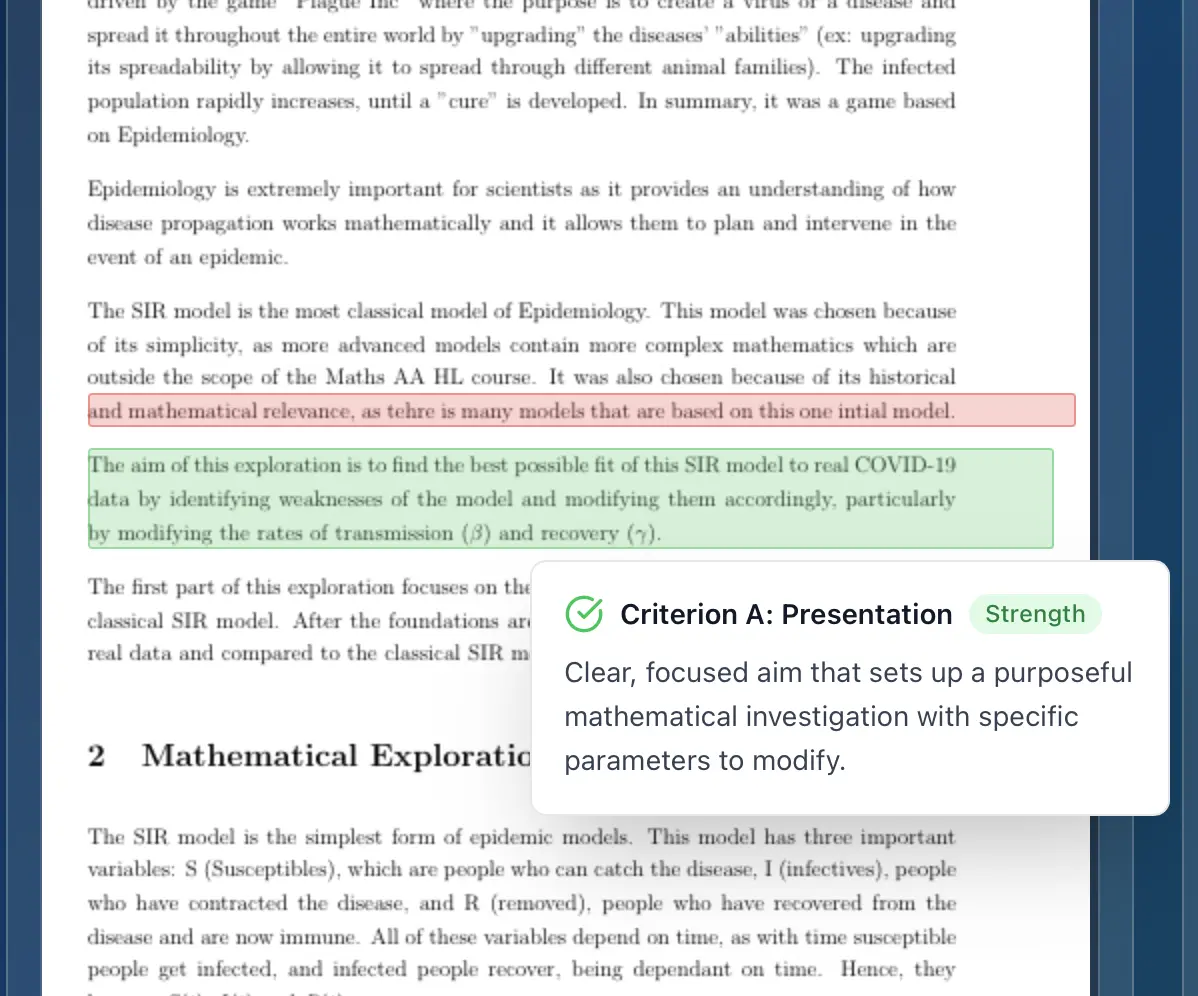How to Write a Killer Research Question for Your EE
Crafting a compelling research question is the cornerstone of a successful IB Extended Essay (EE). It's the compass that guides your research, analysis, and ultimately, your final grade. This guide will provide you with a step-by-step approach to formulating a research question that is focused, manageable, and allows you to demonstrate critical thinking and in-depth understanding, crucial for achieving a high score. Whether you're just starting your EE journey or struggling to refine your current question, this comprehensive guide will equip you with the knowledge and tools to write a killer research question.
Introduction (Answer the Query Immediately)
The IB Extended Essay (EE) is a significant undertaking, and the foundation of a strong EE lies in a well-defined research question. This question acts as the central focus of your investigation, guiding your research and analysis. A poorly formulated question can lead to unfocused research, superficial analysis, and ultimately, a lower grade. This guide provides a comprehensive overview of how to craft a compelling research question for your EE, covering everything from brainstorming initial ideas to refining your question for optimal clarity and focus. We will delve into the key characteristics of a strong research question, provide examples across various IB subjects, and offer practical tips to help you navigate common challenges. By the end of this guide, you'll have the tools and knowledge to create a research question that sets you up for success in your IB journey.
Struggling with IB Assessments?
Get instant, detailed feedback on your work with AI that understands IB criteria.

What Makes a Good Research Question for Your EE?
Before diving into the "how-to," let's define what constitutes a "good" research question for your IB Extended Essay. A strong research question should be:
- Focused: It should address a specific issue or problem within your chosen subject area. Avoid broad, general questions that are difficult to answer within the EE's word limit.
- Manageable: The scope of the question should be realistic and achievable within the timeframe and resources available to you.
- Researchable: You should be able to find sufficient and reliable sources of information to support your investigation.
- Analytical: The question should encourage critical thinking, analysis, and evaluation, rather than simply summarizing information.
- Interesting: Choose a topic that genuinely interests you. This will make the research process more engaging and rewarding.
Step-by-Step Guide to Crafting Your Research Question
Here's a step-by-step guide to help you develop a killer research question for your EE:
Step 1: Choose a Subject Area
Start by selecting a subject area that you enjoy and are relatively strong in. This will make the research process more engaging and increase your chances of success. Remember, you'll be spending a significant amount of time on this project, so choose wisely.
Step 2: Brainstorm Potential Topics
Once you've chosen a subject, brainstorm potential topics that interest you. Don't worry about being too specific at this stage. Just jot down any ideas that come to mind. Consider:
- Current events related to the subject
- Areas of the subject that you find particularly fascinating
- Controversial issues or debates within the subject
- Real-world applications of the subject
Step 3: Narrow Down Your Topic
After brainstorming, review your list and identify the topics that are most promising. Narrow down your focus to a specific area within the broader topic. For example, if you're interested in history, you might narrow your focus from "World War II" to "The impact of the Battle of Stalingrad on the Eastern Front."
Step 4: Formulate a Preliminary Question
Based on your narrowed topic, formulate a preliminary research question. This is a first attempt at framing your research focus. It doesn't have to be perfect at this stage, but it should be a clear question that you can begin to explore.
Example:
- Subject: Biology
- Topic: Genetic engineering
- Preliminary Question: What are the ethical implications of CRISPR technology?
Step 5: Research and Refine
Now, it's time to do some preliminary research. Read articles, books, and other sources related to your topic. As you research, you'll gain a better understanding of the existing knowledge and identify potential gaps or areas for further investigation. This research will help you refine your research question.
Key questions to ask yourself during this stage:
- Is there enough information available to answer my question?
- Is my question too broad or too narrow?
- Is my question truly analytical, or am I simply summarizing information?
- Am I genuinely interested in this topic?
Step 6: Craft Your Final Research Question
Based on your research and reflection, craft your final research question. This should be a clear, focused, manageable, researchable, and analytical question that you are genuinely interested in.
Characteristics of a strong research question:
- Specificity: Avoid vague or ambiguous language.
- Clarity: Use precise and understandable terms.
- Focus: Address a specific issue or problem.
- Feasibility: Ensure that the question can be answered within the EE's word limit and timeframe.
Example of a refined research question:
- Preliminary Question: What are the ethical implications of CRISPR technology?
- Refined Research Question: To what extent does the potential for off-target effects in CRISPR-Cas9 gene editing outweigh its benefits in treating inherited genetic diseases?
Examples of Strong Research Questions Across Different IB Subjects
Here are some examples of strong research questions across different IB subjects:
- History: To what extent did the social and economic policies of the New Deal alleviate the suffering of African Americans during the Great Depression?
- Economics: How effective is the implementation of carbon taxes in reducing carbon emissions in developed countries, considering their impact on economic growth and income inequality?
- English Literature: How does Margaret Atwood use dystopian settings and female protagonists in The Handmaid's Tale to critique patriarchal power structures?
- Physics: To what extent can the efficiency of perovskite solar cells be improved through the optimization of their thin-film deposition techniques?
- Mathematics: How can graph theory be applied to optimize traffic flow in a major urban center, considering factors such as road capacity and travel time?
Pro Tip: Get AI-Powered Grading
Stop second-guessing your grades. Get instant feedback aligned with official IB rubrics.

Common Challenges/Mistakes When Formulating a Research Question
Students often face several challenges when formulating their EE research questions. Here are some common mistakes and how to avoid them:
- Choosing a topic that is too broad: This leads to unfocused research and superficial analysis. Solution: Narrow down your topic to a specific area of interest.
- Formulating a question that is too descriptive: This doesn't encourage critical thinking or analysis. Solution: Frame your question to require evaluation, comparison, or analysis.
- Selecting a topic that is not researchable: This makes it difficult to find sufficient information. Solution: Conduct preliminary research to ensure that there are enough reliable sources available.
- Choosing a topic that is not interesting: This leads to a lack of motivation and engagement. Solution: Select a topic that you genuinely enjoy and are passionate about.
- Not refining the question after initial research: The initial question is rarely the best. Solution: Continuously refine your question as you learn more about the topic.
Advanced Tips/Strategies for a Killer Research Question
Beyond the basics, here are some advanced tips to elevate your research question:
- Consider the "So What?" Factor: Ask yourself why your research question is important and what contribution it will make to the existing knowledge.
- Explore Interdisciplinary Approaches: Consider combining concepts or methodologies from different subjects to create a unique and insightful research question.
- Focus on a Specific Context: Narrow your focus to a particular time period, geographical location, or cultural context.
- Use Strong Verbs: Use verbs that encourage analysis, evaluation, or comparison, such as "evaluate," "analyze," "compare," "contrast," or "assess."
- Seek Feedback: Share your research question with your supervisor, teachers, or peers and ask for their feedback.
Technology and Modern Assessment: The Role of AI
The landscape of education is constantly evolving, and technology plays an increasingly important role in assessment. AI-powered tools are transforming how students learn and how teachers evaluate their work.
One of the key benefits of AI in education is its ability to provide personalized and timely feedback. AI algorithms can analyze student work based on official IB rubrics and provide detailed insights into their strengths and weaknesses. This allows students to identify areas for improvement and focus their efforts on mastering the required skills.
Marksy is a leading AI grading assistant specifically designed for the International Baccalaureate (IB). It provides instant, accurate, and detailed feedback on student work based on official IB rubrics. With Marksy, teachers can save valuable time while ensuring consistent and fair assessment. The platform offers rubric-aligned scoring, detailed criterion-by-criterion feedback, and suggestions for improvement, helping students understand exactly how to improve their work. By leveraging AI, Marksy helps teachers provide more effective feedback and empowers students to achieve their full potential in the IB program. This allows students to better understand the nuances of the IB criteria and apply that understanding to crafting a strong research question.
Conclusion with Clear Next Steps
Crafting a killer research question for your IB Extended Essay is a crucial step towards achieving a high score. By following the steps outlined in this guide, you can develop a question that is focused, manageable, researchable, and analytical. Remember to choose a topic that genuinely interests you, conduct thorough research, and refine your question based on your findings.
Next Steps:
- Brainstorm potential topics: Start by listing areas within your chosen subject that pique your interest.
- Narrow down your focus: Choose a specific aspect of your topic to investigate.
- Formulate a preliminary research question: Draft a question that reflects your initial research focus.
- Conduct preliminary research: Explore existing literature and resources related to your topic.
- Refine your research question: Adjust your question based on your research findings and feedback.
- Seek feedback from your supervisor: Share your research question with your supervisor for guidance and suggestions.
Ready to take your IB Extended Essay to the next level? Try Marksy for free and experience the power of AI-driven feedback. See how Marksy can help you refine your research question, improve your analysis, and achieve your academic goals. Sign up for a free trial today and unlock your full potential!